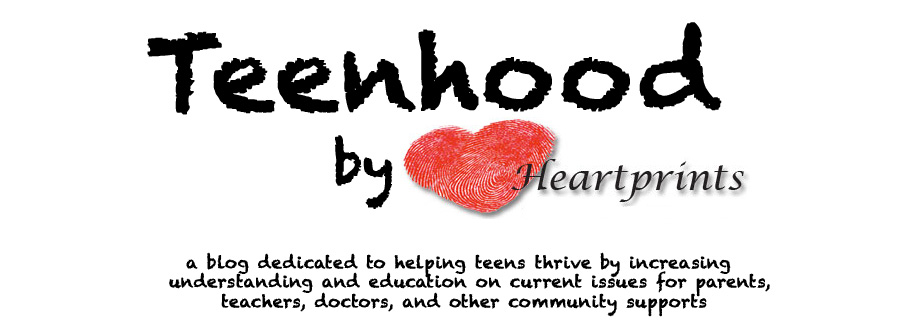February is National Eating Disorder Awareness month. Honestly, this is not my favorite topic to discuss or blog about, but last weekend I went to a CREDN (Columbia River Eating Disorder Network) work shop. One of the speakers pointed out even professionals, we all bring our inner biases and beliefs about food and our bodies to the table. I can work with alcoholics, drug abusers, depression, anxiety, self-harm without my personal experiences interrupting too much (aka counter-transference). But when we start talking about weight, eating disorders, and body image, all of a sudden, I am very aware of my body, of what I ate that day, and of my own insecurities. Even amongst counseling colleagues "fat shame" is common. "I'm fat." "I'm on the insert latest fad diet here diet." "I keep trying to lose weight." "You look like you've lost weight" said with an approving smile. We rarely hear "I love my body." And if we do, we may resent the speaker. "Why should they be able to be happy with their body when I cannot? What arrogance!"
Eating disorders are deadly. One of the conference speaker's daughter died of Bulimia one year after the first time she purged. The thought makes me go cold all over. My stomach twists and turns this way and that and I recognize the feeling of helplessness. If you love or have loved someone who has an eating disorder (and statistics indicate you do), you may understand. What can we do to help?
The conference challenged me to change my thinking and to watch what I say even subtle implications in conversation with others. My goal is to create a space where people know they are valuable regardless of appearance, weight, size, height, or food choices. This environment promotes an atmosphere of healing for those who struggle with their bodies and food. For our little ones who watch our every move, we can role model unconditional acceptance of our own bodies. This is hard but no one ever said it would be easy.
5 Practical Ways to Handle Fat Shame:
- When someone asks if you have lost weight or praises you for losing weight, try "So you remember me being fatter?" This will discourage their comments.
- Focus on the underlying feelings: "You sound really unhappy." or "How are you feeling otherwise?"
- When someone comments on how much they need to lose weight, ignore it and change to another topic. Telling them they don't need to lose weight reinforces their talk. Agreeing with them increases shame. Just as you might ignore and distract an annoying behavior in your child, distract the speaker with another topic like, "How was your weekend?".
- Put up some boundaries. "That's not a topic I discuss." "I have nothing to say to that." "I prefer not to talk about weight/diets etc..."
- When someone shames food (i.e. how unhealthy or how many calories etc...), try "It's a insert food of choice, not a genocide." or "How about we just enjoy this?"
Find the approach which works for you. For some humor, even sarcasm can interrupt the cycle. Other's may need a gentler method. Remember 'fat shame' is another form of bullying. Because it is associated with health we may feel it is more acceptable. It's not. Just as we do not judge based on race, we should not judge based on weight. One woman said "God doesn't smile when we eat an apple and cry when we eat cake." Focus on health and listening to your body--not on appearance. Discover what you love about your body.
Spotting an Eating Disorder and What To Do
Most people who struggle with eating disorders (not just girls), are really good at keeping secrets. Keeping secrets perpetuates the inner, and sometimes family, shame, thus reinforcing the secret keeping. Unlike other mental health issues, many with eating disorders look like they have it all together on the surface. They maintain their responsibilities in jobs and hobbies, have friends, and get good grades--often straight A's. They may be perfectionists. They may exercise excessively, keep track of their food intake obsessively, never eat in front of people, or hide their eating.
If you are concerned about someone's eating habits, get them help. Working with a doctor, counselor, and nutritionist who are familiar to with eating disorders is imperative for change to occur. Remember, just like physical illness, healing takes time and is a long process. Just like cancer doesn't have a quick fix neither do eating disorders. Those with eating disorders often have a brain chemistry disruption. Ignoring the problem only prolongs it. Connecting them with the right help may very well save their life.
I want my daughters and sons to love their body, comparing it to no one. I want to train them to listen to their bodies and encourage health. I want them to see people as valuable for who they are rather than having to conform to cultural standards of beauty. I want their definition of beauty to have nothing to do with attraction but to include inner qualities such as grace, kindness, and respect. Is it possible? I don't know but I am determined to work to facilitate the change so my children can love and accept the body God gave them without question.
Further help and inspiration:
"Pretty" video
Eating Issues, Aging, and Women article
SPEAK: Students Promoting Eating Disorder Awareness and Knowledge
Providence Behavior Health Services: Adolescent Eating Disorder Services 503-216-2025 or 800-716-5325
Center for Discovery in Bellevue and Edmonds, WA
Rain Rock in Eugene, OR
Kartini Clinic for Disordered Eating in Portland
Free Eating Disorder Art Therapy Support Group @ A Better Way Counseling Center 503-226-9061 in Portland, OR

